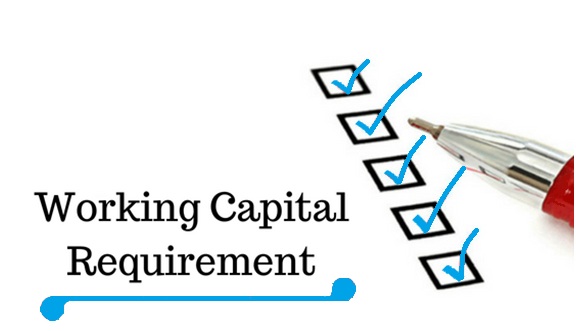Working capital requirement falls under the necessities a business needs to meet daily. Working capital or net working capital is the amount of money a business needs to fund its current assets. Sufficient availability of required working capital is essential to carry out operations every day. Available working capital in a company is also an indicator of the organisation’s liquidity.
While the definition for what is working capital (WC) and its calculation is the same for all, its requirement varies as per the business or industry based on various factors.
10 factors that induce working capital requirements:
- Nature of the business’s operation
Business nature can be segregated into two types, i.e., manufacturing and trading. In the former, converting raw material into finished goods takes considerable time. Hence, the working capital investment period is extended. However, it is not the case with trading businesses.
- The scale at which a company operates
A business’s scale of operation also determines its working capital requirement. If your business operates at a considerably larger scale, or the organisation is big, WC requirement would be more than for a smaller company with limited production or sales.
- The cycle of economic contraction or expansion
The on-going business cycle also affects the requirement for working capital. If the economy is booming, an increase in demand requires a higher input of working capital. On the other hand, contraction in the economy reduces the requirement for working capital.
Economic booms, therefore, require you to induce more working capital in your business. You may meet your additional financial requirement by availing a working capital loan
- Factors affecting seasonal requirements
Not all items have similar demands all year round. If your business manufactures products demanded during specific seasons, the requirement for WC will be high during that season as compared to other times.
- Business’s production cycle
Production cycle refers to the duration required to produce finished goods from raw material. The more this duration is, the higher will be the working capital requirement for your business. It also affects the life cycle of working capital for a business.
- Business’s credit policy
If you follow a tight credit policy, the need for working capital will be less as the duration for the credit allowed will be short. However, the WC requirement increases if your business has a liberal credit policy. Hence, you would require more funds like working capital loan to keep invested in WC.
- Ability to complete business operations
Your business’s operational efficiency also affects the amount of WC you need to keep invested in your business. A lower efficiency will require more working capital and vice versa.
- Raw material availability
With readily available raw materials for a business, the requirement for WC will be less as against for the ones whose raw material need to be procured beforehand and stocked.
- The existing level of competition
The competition level in the market also impacts WC requirement. Higher competition means you need to increase production and supply. However, it is not the case with a business operating in a market where competition is limited.
- Industry growth
Not all industries operate at the same level of growth. So, companies operating in an industry with a high growth rate need more working capital as against companies operating in a sector with a sluggish rate of growth.
With these factors in mind, you may decide on the working capital requirement for your business. Avail a business loan to meet additional funds and make sure your business never runs out of working capital.




![Wendy's secret menu [Updated in January 2024]](https://przemekspider.com/wp-content/uploads/2024/01/How-4chan-ended-2022-after-years-of-controversy-and-turmoil-2.jpg)